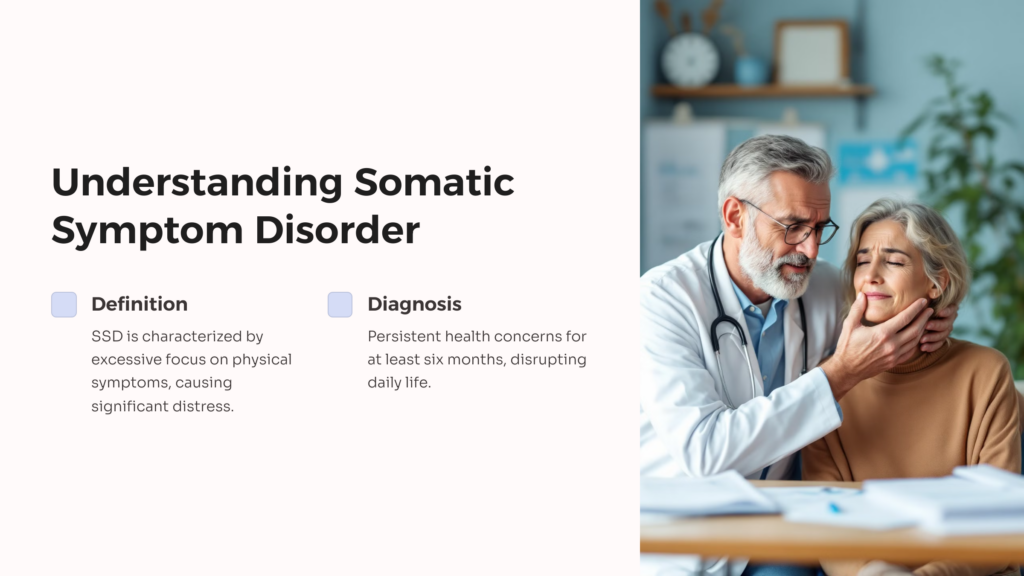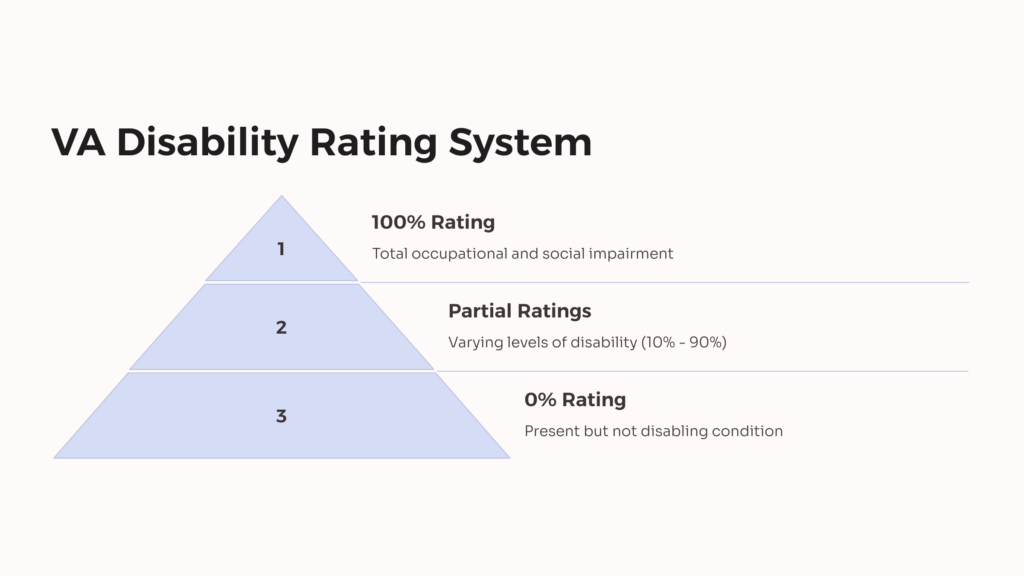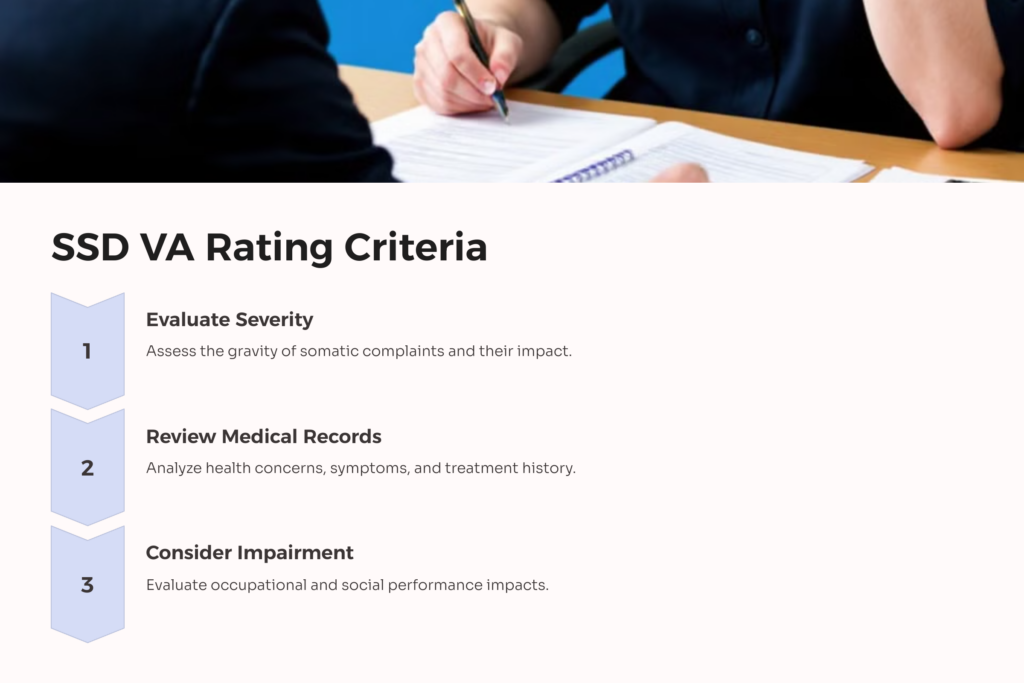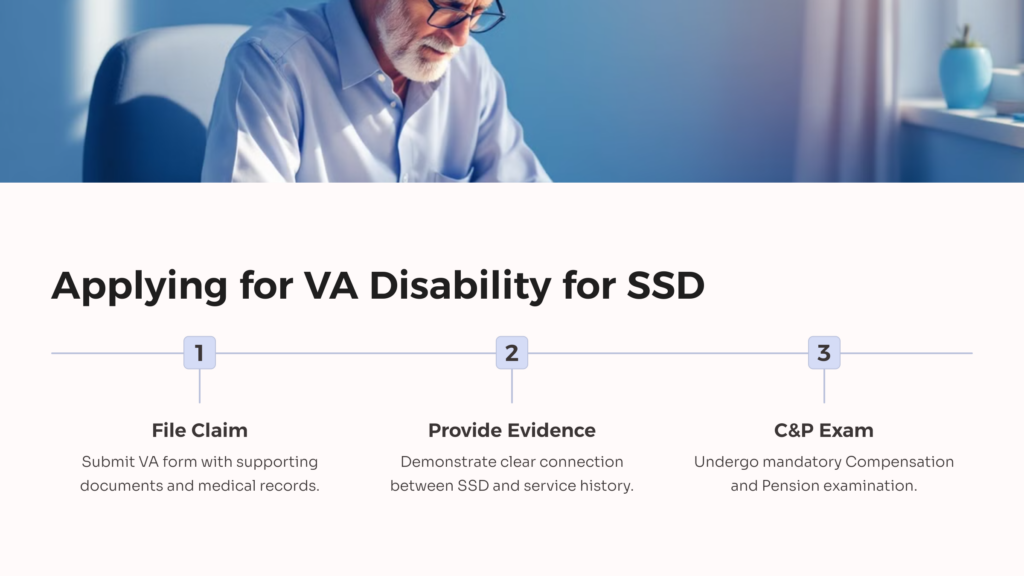Introduction

Somatic symptom disorder (SSD) refers to a mental health condition characterized by an excessive focus on a physical symptom, such as pain or fatigue, that causes significant emotional distress and difficulty in functioning. The issue of SSD often intersects with the work of the United States Department of Veterans Affairs (VA), which provides healthcare services to military veterans. The impacts of war and military service expose veterans to a higher risk of SSD, making its diagnosis, understanding, and VA disability rating highly relevant in the context of VA services.
Diagnosis of Somatic Symptom Disorder
In diagnosing SSD, several distinct characteristics are analyzed. Prevalent symptoms include continuous concern about potential illnesses, perceptions of grave illness despite mild or negligible symptoms, or excessive time and energy spent worrying about health or handling health matters. Manifestations of these symptoms persist for at least six months, causing significant disruption to daily life.
The diagnostic process for SSD involves comprehensive evaluations to identify these symptoms, ruling out other potential physical conditions or mental disorders. Often, psychiatrists or psychologists carry out these evaluations through detailed interviews and consideration of a patient’s medical history to diagnose the mental disorder.
SSD Cases in Veterans
The incidence of SSD is particularly high among veterans. The stress of active duty, the physical and emotional toll of combat, and the difficulty some veterans experience when reintegrating into civilian life are all factors that can contribute to a veteran’s mental health and the development of SSD or other neurocognitive disorders.
A combination of physical injuries, the influence of traumatic experiences, and the psychological aftereffects of war can significantly heighten veterans’ propensity toward developing SSD. These unique factors make veterans a particularly vulnerable group for this afflictive mental disorder.
Understanding VA Ratings

In the realm of veteran affairs, understanding the VA disability rating system is crucial. VA ratings determine the amount of compensation veterans receive and serve as a reflection of the severity of their impairment. Ratings are given for both a physical medical condition and a mental condition.
These ratings are expressed in percentages, ranging from 0 to 100 percent. The VA takes into consideration the severity of the disability, its impact on everyday life, and the veteran’s ability to work gainfully. A higher rating signifies a higher level of disability and thus leads to higher compensation.
Somatic Symptom Disorder VA Rating
The VA rating process for SSD is nuanced and requires a comprehensive understanding of how mental disorders are evaluated. There is a differentiation between SSD and other psychological disorders such as Post Traumatic Stress Disorder or Generalized Anxiety Disorder – each follows a dedicated rating schedule.
The numerical ratings for SSD signify varying disability levels. For instance, a 0 percent rating denotes a present but not disabling condition. A 100 percent rating indicates total occupational and social impairment due to health concerns related to SSD.
SSD Rating Criteria

The somatic symptom disorder VA rating criteria used by the VA follow a careful evaluation of the severity of the disorder. It’s essential to understand that SSD’s rating hinges upon how grave the somatic complaints are and how much they impair occupational and social performances.
A breakdown of how the severity of SSD impacts the VA rating involves evaluating the veteran’s health concerns, symptoms, and treatment history. This information is typically stitched together using medical records, psychological evaluations, and personal testimony.
Applying for VA Disability for SSD

For veterans, applying for VA disability for SSD begins with filing a VA disability claim. This process requires a formal request that includes the right VA form and various supporting documents, such as medical records, military service records, and any additional evidence to corroborate that the disability is service-connected.
Substantiating the claim usually calls for a detailed narrative that demonstrates a clear connection between the SSD and service history. Moreover, undertaking a mandatory Compensation and Pension (C&P) examination is part of this protocol.
Appeal and Review Process
In cases where a claim is denied, or a veteran disagrees with the rating decision, the VA has an appeal process in place. Veterans can request a review within one year of the VA’s decision.
The reviewing process involves a thorough re-evaluation of the claim. The veteran may provide new supporting information and refer to previous evidence that might not have been sufficiently considered. Expertise in understanding the VA processes is beneficial in this regard.
Professional Help for VA Ratings
Given the complexity of the VA protocol and SSD’s indefinable nature, it is of utmost importance to seek professional help when applying for a VA disability claim. Professionals, such as VA-accredited lawyers, have the needed legal know-how and experience with such cases.
These professionals can provide assistance in navigating the complexities of the VA system, gathering suitable evidence, and appealing to a negative decision. Their intervention can help maximize the VA rating and thus secure fair compensation for veterans.
Understanding the VA rating for SSD is pivotal for veterans who suffer from this disorder. The appropriate recognition and valuation of SSD’s severity play a key role in determining the compensation these veterans deserve. It’s essential to remember that support, in terms of VA services and professional assistance, is readily available to aid veterans in tackling SSD and ensuring their post-service life quality is safeguarded.
 AllVeteran.com Advisors
AllVeteran.com Advisors
With expertise spanning local, state, and federal benefit programs, our team is dedicated to guiding individuals towards the perfect program tailored to their unique circumstances.


















